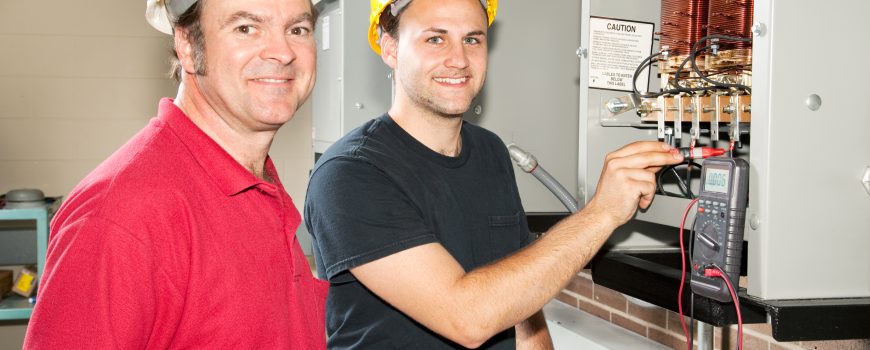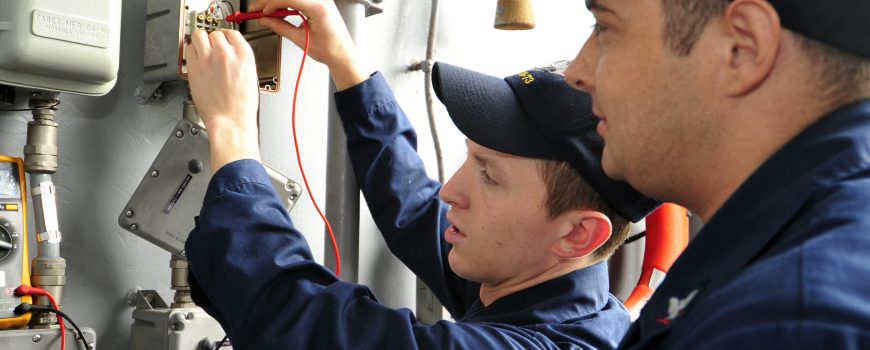Become an Electrical Technician with ATI
An electrical technician plays a vital role in the upkeep of residential and industrial maintenance environments. Their duties include installing, repairing, and maintaining electrical components and equipment. Electricians work in a variety of industries including manufacturing, research and electronics, while using their knowledge of blueprint reading to work on electrical systems.
If something with the electrical equipment goes wrong, the Electrical Technician is in charge of repairing failed equipment as quickly, efficiently, and safely as possible. An electrician must have working knowledge of the federal and state regulations as they install electrical equipment. It is also important for electricians to stay current on safety practices as well. Often times the electrician may calibrate, troubleshoot, inspect, clean, modify, upgrade, or even uninstall electrical equipment.
There are a lot of career paths for a certified electrician. An Electrical Technician can branch off to other practices such as Maintenance Technician, Electrician Journeyman, and Electrical Engineer. These three branches form a very wide career path for electricians.
A Maintenance Technician normally handles the maintenance and upkeep of establishments and businesses. In some cases, such as apartment buildings, the technician may live on sight or reside nearby to respond promptly when required. Some of their tasks may include: performing routine preventative maintenance to ensure that the building is operating efficiently and that the physical condition of the building is safe and free of hazards.
An Electrician Journeyman works in the field of electronics in a real, hands-on fashion. They spend a lot of time out in the field, working to install and troubleshoot wiring from drawings, hence the name “Journeyman.” The tasks of an Electrician Journeyman include: laying out and preparing equipment for installation, installing feeder wires, installing and troubleshooting control wiring from drawings, and troubleshooting motor and controls.
An Electrical Engineer is in charge of designing, maintaining, implementing, and improving electrical instruments and equipment. Strong problem solving skills are necessary for an Electrical Engineer to have for completing assigned projects. Such projects can include: initial concept development, layout and selection pf equipment, development of contract drawings, specification writing, bid package preparation, field investigations, and support during construction.
The possibilities are endless when it comes to careers in the electrical workforce. ATI helps Las Vegas area students reach their goals of becoming a trained Electrical Tech in a very hands-on environment. If you’ve been searching for the first step to becoming an Electrical Tech, ATI is here to provide you with the knowledge and training you need!
Like and Follow ATI on Facebook and Twitter!














